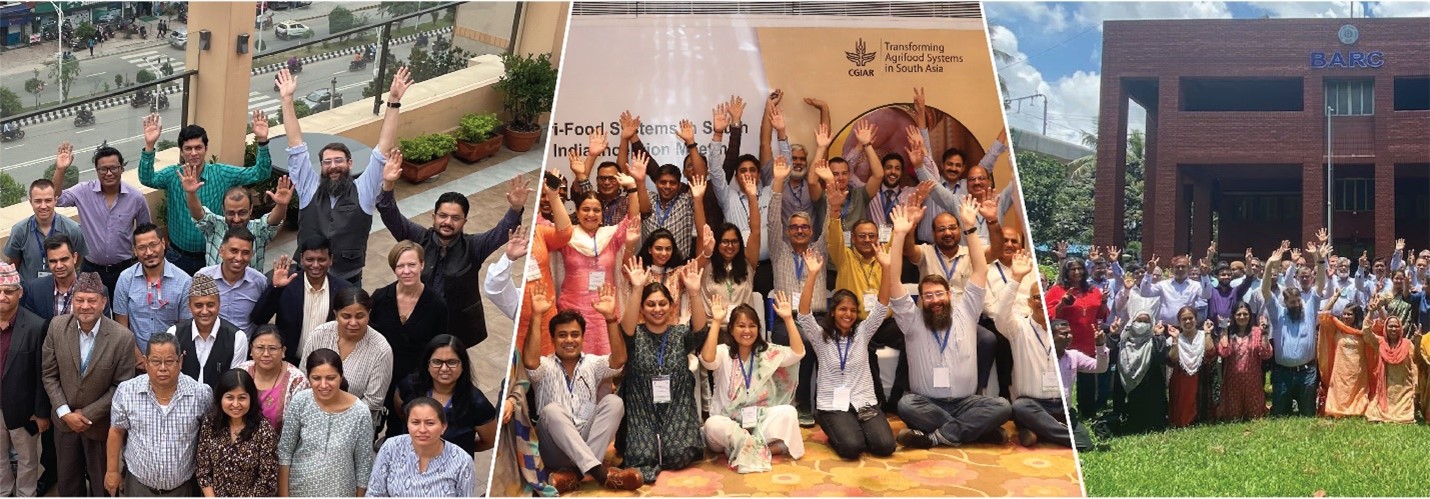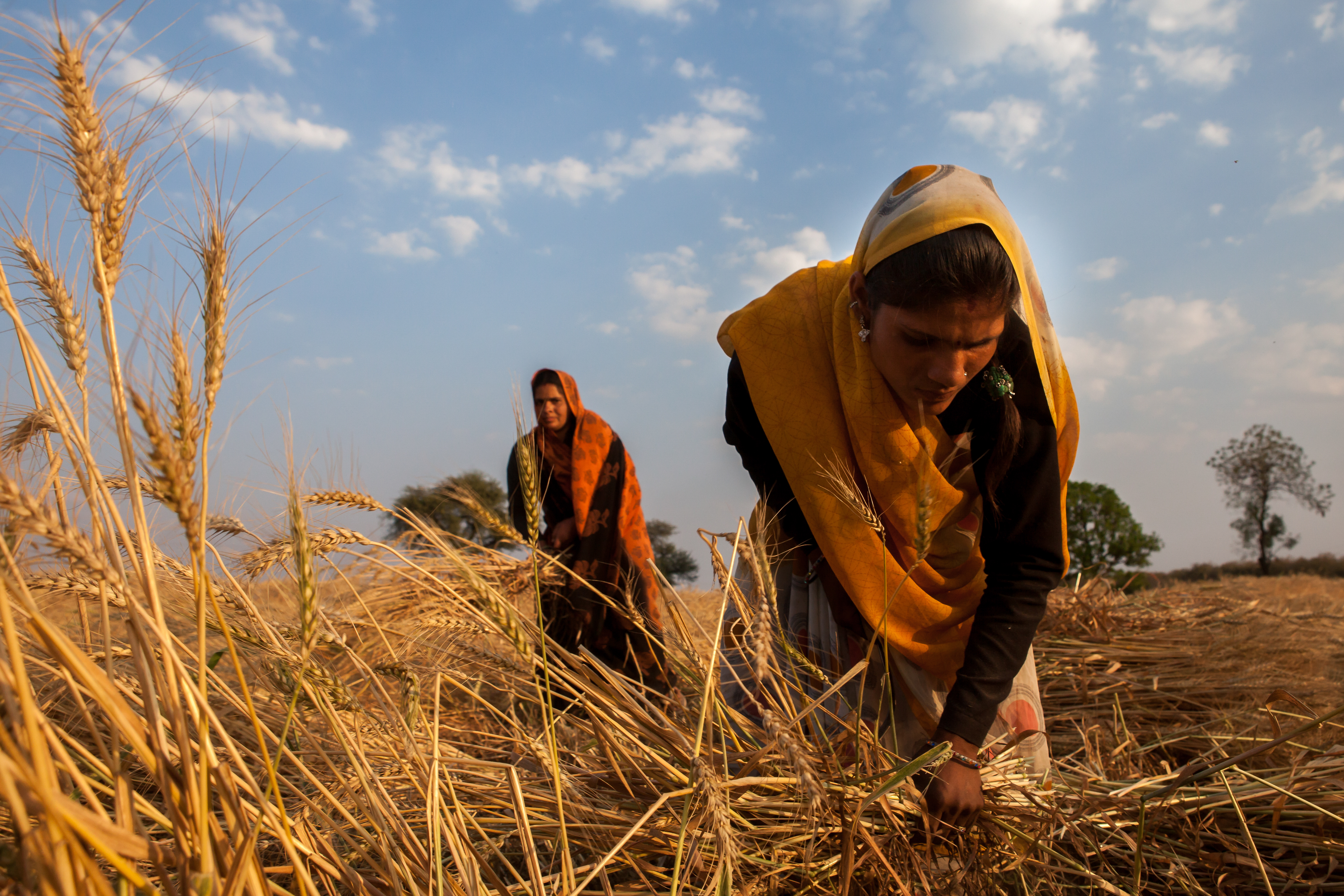
CGIAR, in collaboration with government agencies and other relevant stakeholders, held country launches of the Transforming Agrifood Systems in South Asia (TAFSSA) Initiative in three of its four working locations: Nepal, India and Bangladesh.
TAFSSA, which also operates in Pakistan, aims to deliver a coordinated program of research and engagement, transforming evidence into impact through collaboration with public and private partners across the production-to-consumption continuum. The end result will be productive and environmentally sound South Asian agrifood systems that support equitable access to sustainable healthy diets, as well as contributing to improved farmer livelihoods and resilience, while conserving land, air and groundwater resources.
A vision for South Asian agrifood systems
The three country-level launch events provided a platform for CGIAR’S partners to discuss TAFSSA’s five key areas:
- Facilitating agrifood system transformation through inclusive learning platforms, public data systems, and collaborations.
- Changing agroecosystems and rural economies to increase revenue and sustain diverse food production within environmental constraints.
- Improving access to and affordability of sustainably produced healthful foods through evidence and actions across the post-harvest value chain.
- Addressing the behavioral and structural factors of sustainable healthy diets
- Building resilience and limiting environmental impact.
The three inception events in Nepal, India and Bangladesh also provided a space for open debate on creating partnerships to achieve common goals, through multidisciplinary conversation on each focal area. Breakout sessions were also held according to emphasis area, explaining the initiative and its components clearly and providing opportunities to brainstorm with participants on how to build more stakeholder-responsive activities.
More than 70 participants attended each inception session, both in-person and online, representing government agencies, CGIAR and its research centers working on TAFSSA, international organizations working in the region, academic institutions, and other key stakeholder groups.
Project endorsements
At the launch event in Nepal on June 9, Temina Lalani Shariff, regional director for South Asia at CGIAR, described TAFSSA as a gateway to the rest of CGIAR’s global research efforts. She explained, “More than 100 partners from around the world will exchange their knowledge, skills and expertise through CGIAR’s new platform to work together for agriculture development.”
Purnima Menon, TAFSSA co-lead and senior research fellow with the International Food Policy Research Institute (IFPRI), presented the project in India on June 15. “The research portfolio and engagement plan we’re proposing is really intending to cut across the food system,” said Menon. “We want to engage people in production systems, people in the middle of the value chain, and consumers, to build the research portfolio. The idea is to do so in a way that is interlinked with the five new CGIAR impact areas and that amplifies CGIAR’s research on the ground.”
Introducing TAFSSA in Bangladesh on July 18, Timothy J. Krupnik, Initiative lead and senior agronomist with the International Maize and Wheat Improvement Center (CIMMYT), stated, “The approach we’ve taken while developing this Initiative was to first look at agrifood crisis issues in South Asia. We evaluated key challenges in this region which has world’s highest concentrations of hunger and poverty.” He highlighted climate change, resource constraints and social structural inequalities, all of which will be addressed by TAFSSA through several focus areas.
Shaikh Mohammad Bokhtiar, Chairman of the Bangladesh Agriculture Research Council (BARC) welcomed these ideas at the TAFSSA Bangladesh launch. “If we want to create an intelligent society or nation, if we want sustainability, we must provide nutrition for all,” said Bokhtiar. “In this region, I believe that combining science, technology and innovation in the TAFSSA initiative will deliver good results.”
Shariff also attended the launch in Bangladesh, where she remarked, “We are here to share a common path to work together to confront the challenges. For that, cooperation is the essential component which is common across Nepal, India and Bangladesh.”
At each of the launch events, TAFSSA was announced as a flagship initiative in South Asia by Martin Kropff, managing director of Resilient Agrifood Systems (RAFS) at CGIAR. He expressed confidence that it would be the first regional program to deliver significant development results and acknowledged that the planned collaboration and partnership with national research institutes would ensure TAFSSA’s success.
 Capacity development
Capacity development 